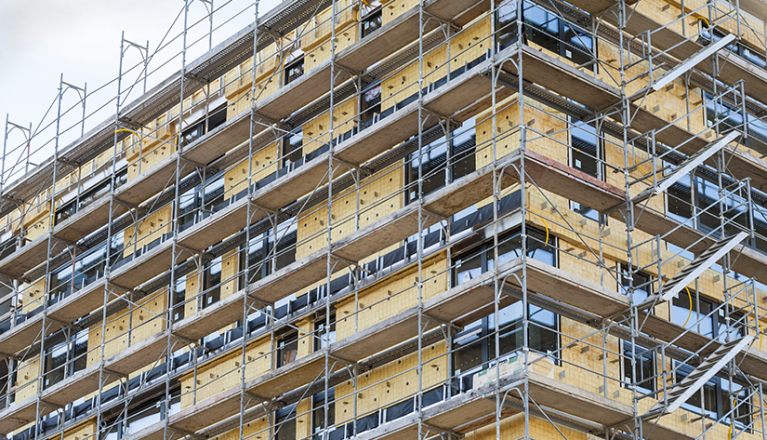-
View article
 #Economy
#EconomySouth Korea: a year after the political crisis, markets are buying the promise of stability
2025/12/17
- #Real estate
- 2020/07/20
- 0
-
3
Retrofitting buildings for energy efficiency: the imperative and the challenge

With existing buildings accounting for 45% of final energy consumption and 27% of greenhouse gas emissions in France, the need to retrofit them for energy efficiency is as pressing as ever if France is to combat climate change and hope to achieve its target of being carbon neutral by 2050.
Measures already in place but disappointing results
Faced with the climate emergency, efforts have up to now mainly been focused on retrofitting homes, which receive around €4 billion a year in government grants. This is a lot, but is it enough? And what are the needs?
Out of 30 million existing homes in France, 7-8 million are classed as thermally inefficient and in urgent need of retrofitting. If 250,000 such homes are retrofitted every year, it will take around 30 years to upgrade all these thermally inefficient homes – a trajectory consistent with the target of achieving carbon neutrality by 2050. But will we get there? Nothing could be less certain. Despite the efforts of a succession of governments that have sought to get to grips with the energy retrofitting challenge, the market is only growing at around 1.5% a year – scarcely more than the 1% average annual growth seen in the maintenance and renovation sector as a whole.
For commercial buildings, 63% of which are privately owned, the target is to cut energy consumption by 40% by 2030. However, failure to comply brings little in the way of meaningful sanctions. For the 37% of commercial buildings that are publicly owned, while the €4.8 billion retrofitting plan might well be described as “grand”, applying it to the 370 million square metres of floor space it covers gives a budget of €13 per square metre, a paltry amount that clearly falls far short of the challenge.
Why is retrofitting for energy efficiency not taking off faster, despite all the government funding?
One of the reasons for the lack of enthusiasm for energy retrofitting is quite simply economic: while retrofitting your home is good for the planet, it won’t necessarily do much for your household finances. Retrofitting a thermally inefficient home requires an average up-front investment of €10,000; compare this with expected annual savings of €470 on your energy bill. At that rate, it would take 23 years for the investment to pay off. This can be shortened to around 11 years once you factor in all the government grants.
Furthermore, around 50% of thermally inefficient homes are occupied by households living in precarious circumstances, which quite simply cannot afford to invest in an expensive energy retrofit. Add to that the technical complexity, the tangle of grants and subsidies, and scattered media reports of defective work and fraud and it’s easy to see how people might be reluctant to embark on a large-scale energy retrofitting project.
So what can be done to speed up the progress of energy retrofitting?
Up to now, incentive policies based mainly on financial handouts have produced disappointing results. That being the case, one might legitimately ask whether such policies should be accompanied by obligations and sanctions, with all the attendant difficulties of enforcing them.
Where, then, is the happy medium between necessary incentives and acceptable obligations, without which such measures might be rejected once they run into the harsh realities of implementation?
In this regard, the current economic situation could offer a real opportunity for the energy retrofitting market. With a recovery package for the building and public works sector currently being prepared, building in an energy retrofitting component would certainly be a way to kill two birds with one stone by supporting both the economy and the environment through a win/win approach that would leverage government funding to work towards a more virtuous future.
Quang Khôi NGUYEN








